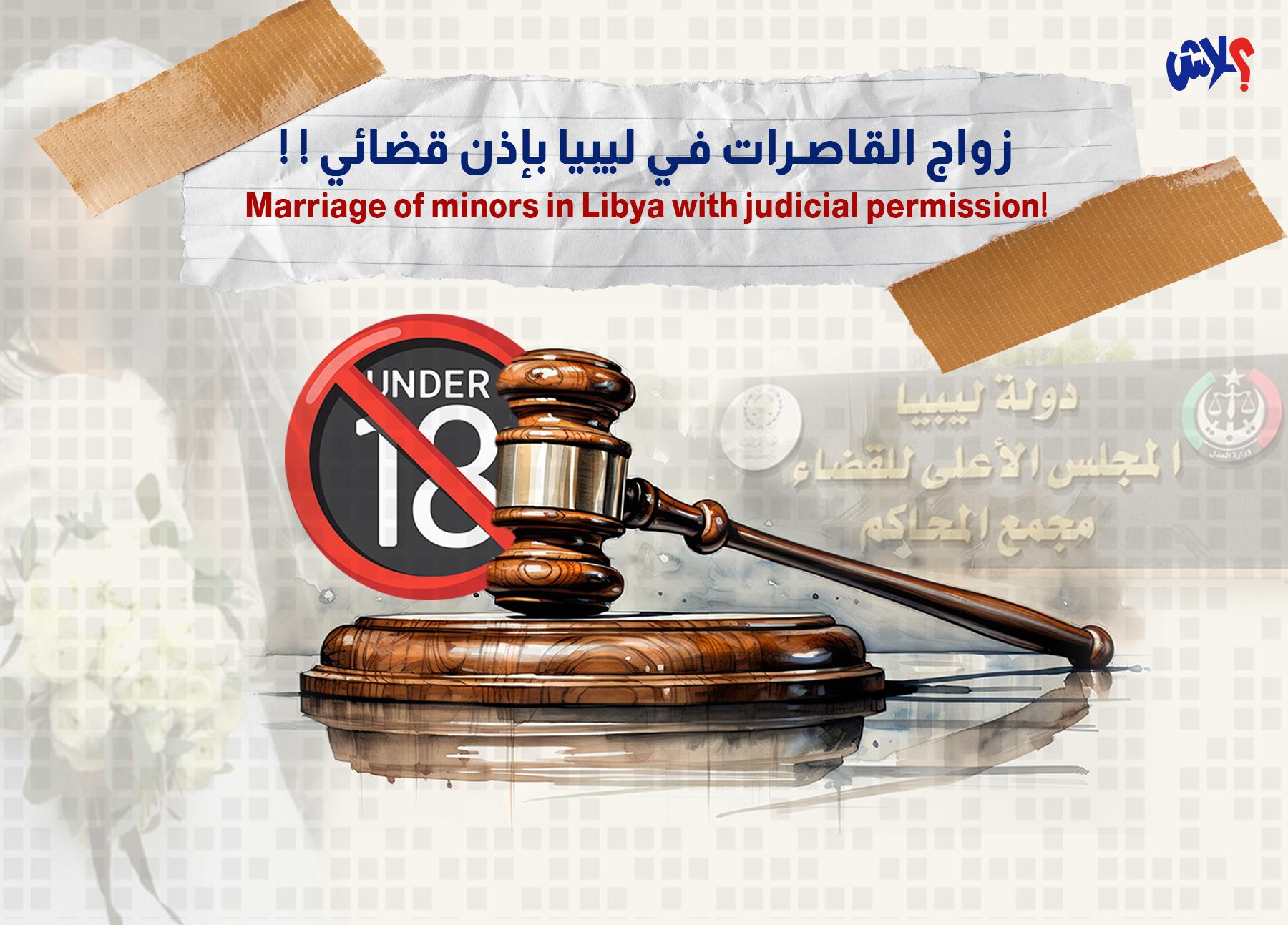Marriage of minors in Libya with judicial permission!
Recently, the platform “Alash” published a text presenting international statistics on divorce rates worldwide, where Libya ranked first in Africa for having the highest divorce rates, reaching 2.5 per 1,000 citizens. Many Libyans attribute this rate to several factors, including economic reasons, the government’s decision under the “Return of Life” program that encouraged marriage by offering financial incentives, and the unpreparedness of the couples to enter into a relationship that produces a stable family. Let’s focus on this point in our analysis.
According to Law No. 10 of 1984 concerning the specific provisions on marriage, divorce, and their effects, Article 6 stipulates the conditions for marriage eligibility in Libya as follows:
- The mental and physical maturity of the individuals.
- The legal age of marriage is completed at twenty years.
- The court may permit marriage before reaching this age for an interest or necessity it deems fit, with the guardian's consent.
- Those who marry according to the previous two paragraphs acquire the legal capacity to litigate in all matters related to marriage and its effects.
Thus, under the Libyan personal status law, full marriage eligibility is reached with mental and physical maturity and upon reaching the age of majority, which Law No. 10 of 1984 sets at twenty years. Before this age, an individual cannot contract marriage by themselves without a court's permission, which is granted for an interest or necessity as assessed by the court and with the guardian's consent. This guardian has specific requirements under the law.
The real issue lies in the judicial permission, which is an exception to the general rule that the legal marriage age should be twenty years. However, in 2015, the General National Congress, the legitimate authority in Libya, issued Law No. 14 of 2015, amending the conditions for marriage in the previously mentioned Law No. 10, with the most notable change being the reduction of the legal marriage age to 18 years, while maintaining the need for permission. This means that if a woman is under 18, she must seek permission from the judge, of course through her guardian.
What we know about the marriage age in Islamic Sharia is that it is linked to the concept of “capability,” meaning that the woman should be physically, psychologically, socially, and mentally capable of marriage. She should be able to bear the responsibility of a family and raise a generation. This capability varies from era to era, is tied to customs, traditions, lifestyle, inherited genes, and diet. Therefore, when the law set the legal age of maturity at 18, it was not arbitrary; it meant that a woman at this age is responsible for her actions and behaviors, whether in contracting, committing crimes, or managing a family.
So, where is the logic in maintaining the judicial permission for marriage cases? If the law sees that a woman, upon reaching 18, is ready to bear the responsibility of her actions, she is thus capable of bearing the responsibility of a family. How then is she allowed to start a family if she is younger than this age, while her other actions are not accepted?
How can a mother who is 17 or 16 years old be responsible for raising children when she is not even responsible for herself? There are no official statistics documenting the number of child marriages in Libya because, simply, the Libyan law does not recognize a specific age below which a woman cannot marry. As soon as the guardian requests permission from the judge to marry his ward, the judge often grants it. The judge is neither a psychologist nor an obstetrician nor a social specialist to know the extent of this (child's) ability to start a family.
However, all documented attempts from various entities indicate that there is a catastrophic and unspoken rate of child marriages constantly recorded in Libya. This is measured by the number of permission requests submitted to the courts in the sub-districts, which, unfortunately, will not provide accurate information about this number. This is because, in Libya, we fear providing information for research and study more than we fear for our daughters.
Any father or mother who contributes in any way to the marriage of their daughter who has not reached the legal age is considered a criminal according to humanitarian law and the spirit of Islamic Sharia, which set a clear standard of capability. I do not believe that today there is a girl between the ages of 10 and 17 who can fully bear the burdens of marriage. Thus, what is happening today under Libyan law and social practices is, in fact, a circumvention of the true intentions of the image of marriage established by religion and endorsed by humanity.
Therefore, whenever you hear someone rejecting the term "child marriage in Libya," tell them, "Do you know the sub-district courts and their permissions?"

